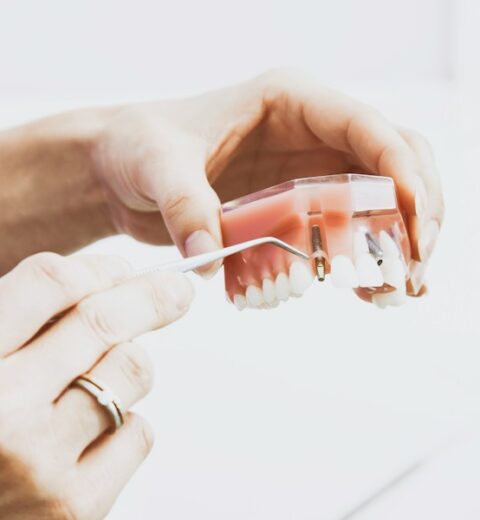The field of dental staffing in the UK is undergoing significant changes, driven by various factors such as advancements in technology, changes in patient expectations, and an evolving healthcare landscape. These changes have led to a shift in the roles and responsibilities of dental professionals, as well as the integration of new technologies and practices. In this article, we will explore the changing landscape of dental staffing in the UK and discuss the implications for patient care and dental practices.
The Role of Hygienists and Therapists in Modern Dental Practices
Hygienists and therapists play a crucial role in modern dental practices. Hygienists are responsible for providing preventive dental care, such as cleaning teeth, applying fluoride treatments, and educating patients on proper oral hygiene practices. They also play a vital role in identifying early signs of gum disease and providing treatment recommendations.
Therapists, on the other hand, are qualified to carry out a wider range of treatments, including fillings, extractions, and some orthodontic procedures. They work closely with dentists to provide comprehensive care to patients. The roles of hygienists and therapists have become increasingly important as they help to alleviate the workload of dentists, allowing them to focus on more complex procedures.
The Growing Importance of Dental Nurses in Patient Care
Dental nurses have always been an integral part of dental practices, providing support to dentists and ensuring the smooth running of clinics. However, their role has evolved over time, and they now play a more active role in patient care. Dental nurses assist dentists during procedures, prepare materials and instruments, take X-rays, and provide post-operative care instructions to patients.
In addition to their clinical responsibilities, dental nurses also play a crucial role in patient communication and education. They often act as a liaison between patients and dentists, answering questions and addressing concerns. With the increasing demand for dental services and the growing complexity of treatments, the role of dental nurses in patient care has become even more important.
The Rise of Dental Technicians and Their Impact on Oral Health
Dental technicians are responsible for creating and repairing dental prosthetics, such as dentures, crowns, and bridges. They work closely with dentists to ensure that these prosthetics fit properly and function correctly. With advancements in technology, dental technicians now have access to digital tools and software that allow for more precise and efficient prosthetic fabrication.
The impact of dental technicians on oral health cannot be overstated. Their work directly affects the quality of life of patients who require dental prosthetics. By creating prosthetics that are comfortable, functional, and aesthetically pleasing, dental technicians contribute to the overall well-being of patients.
The Integration of AI and Robotics in Dental Practices
The integration of artificial intelligence (AI) and robotics in dental practices is revolutionizing the field of dentistry. AI algorithms can analyze patient data and provide valuable insights to dentists, helping them make more accurate diagnoses and treatment plans. Robotics, on the other hand, can assist dentists during procedures, improving precision and reducing the risk of human error.
The benefits of implementing AI and robotics in dental staffing are numerous. They can help streamline administrative tasks, improve patient outcomes, and enhance the overall efficiency of dental practices. However, there are also challenges associated with implementing these technologies, such as cost, training requirements, and concerns about patient privacy.
The Benefits and Challenges of Implementing AI in Dental Staffing
Implementing AI in dental staffing can bring numerous benefits to both patients and dental professionals. AI algorithms can analyze large amounts of patient data to identify patterns and trends that may not be immediately apparent to human dentists. This can help dentists make more accurate diagnoses and treatment plans, leading to improved patient outcomes.
AI can also help streamline administrative tasks, such as appointment scheduling and billing, freeing up time for dental professionals to focus on patient care. Additionally, AI-powered chatbots can provide patients with instant answers to common questions, reducing the need for phone calls and improving patient satisfaction.
However, there are also challenges associated with implementing AI in dental staffing. One of the main challenges is the initial cost of implementing AI systems and training dental professionals to use them effectively. There are also concerns about the potential for AI to replace human dentists, although most experts agree that AI is best used as a tool to augment human capabilities rather than replace them.
The Role of Telehealth in Dental Care Delivery
Telehealth has become increasingly important in the delivery of dental care, especially in remote or underserved areas. Telehealth allows patients to receive dental consultations and follow-up care remotely, reducing the need for travel and improving access to care. It also enables dentists to provide guidance and support to patients who may not be able to visit a dental clinic in person.
The benefits of telehealth in dental care are numerous. It can help improve access to care for patients who live in rural or underserved areas, as well as those who have difficulty traveling due to physical or financial constraints. Telehealth can also help reduce waiting times for appointments and improve overall patient satisfaction.
The Importance of Cross-Training in Dental Staffing
Cross-training is an essential aspect of dental staffing that can help improve the efficiency and effectiveness of dental practices. Cross-training involves training dental professionals in multiple roles and responsibilities, allowing them to perform a wider range of tasks and adapt to changing needs.
Cross-training can help alleviate staffing shortages by allowing dental professionals to fill in for each other when needed. It can also improve teamwork and communication within dental practices, as dental professionals gain a better understanding of each other’s roles and responsibilities.
The Future of Dental Staffing: Opportunities and Challenges
The future of dental staffing is filled with both opportunities and challenges. On one hand, advancements in technology, such as AI and robotics, can help improve patient care and streamline administrative tasks. On the other hand, there are concerns about the potential for job displacement and the need for ongoing training and education to keep up with technological advancements.
Additionally, the demand for dental services is expected to increase in the coming years, driven by factors such as an aging population and a growing awareness of the importance of oral health. This presents an opportunity for dental professionals to expand their practices and provide more comprehensive care to patients.
Strategies for Attracting and Retaining Top Dental Talent in the UK
Attracting and retaining top dental talent is crucial for the success of dental practices in the UK. One strategy is to offer competitive compensation packages that include benefits such as flexible working hours, professional development opportunities, and a positive work environment.
Another strategy is to invest in technology and equipment that can help improve patient care and streamline administrative tasks. Dental professionals are more likely to be attracted to practices that are at the forefront of technological advancements.
Furthermore, creating a supportive and collaborative work environment can help attract and retain top dental talent. This includes fostering a culture of teamwork, providing opportunities for professional growth, and recognizing and rewarding outstanding performance.
Navigating the Evolving Landscape of Dental Staffing in the UK
The landscape of dental staffing in the UK is evolving rapidly, driven by various factors such as advancements in technology, changes in patient expectations, and an evolving healthcare landscape. Dental professionals need to adapt to these changes by embracing new roles and responsibilities, integrating new technologies into their practices, and staying up-to-date with the latest advancements in dentistry.
By navigating the evolving landscape of dental staffing, dental professionals can provide better patient care, improve practice efficiency, and position themselves for success in the future. It is crucial for dental professionals to stay informed about the latest trends and developments in the field and to continuously seek opportunities for professional growth and development. With the right strategies and mindset, dental professionals can thrive in the changing landscape of dental staffing in the UK.













